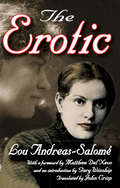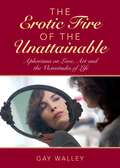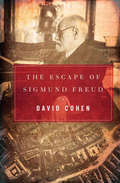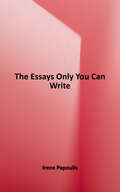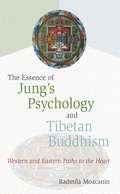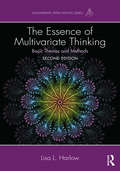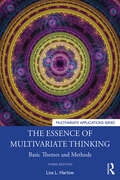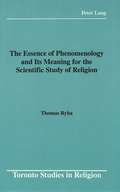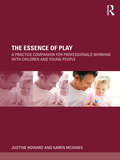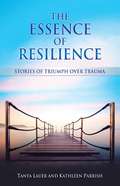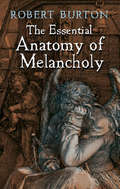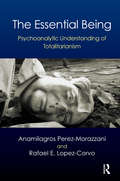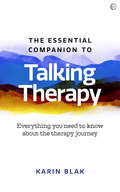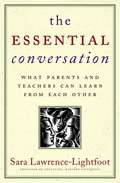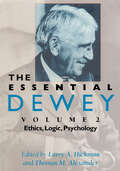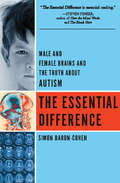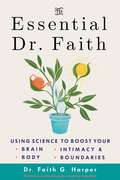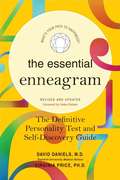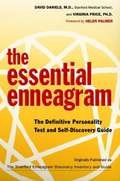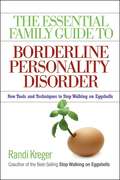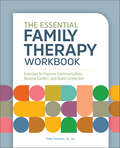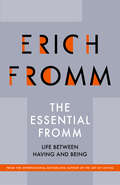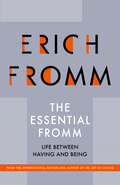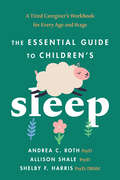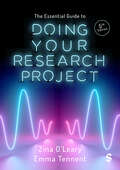- Table View
- List View
The Erotic
by Lou Andreas-SalomePsychoanalyst and author Lou Andreas-Salome may seem to be a figure remote from us, one belonging to a pre-1914 Europe, but in many ways, she is our contemporary. She travelled in a highly romantic world as socialite, sociologist, and author. She was part of Georg Simmel's salon, the most exclusive in Berlin, frequented by elusive poet Stefan Georg, dramatist Paul Ernst, social theorist and polymath Max Weber, and Georg Lukacs, among others.Salome's unique contribution to the erotic was that she argued sexual difference ran deeper than economics and equality—the politics of Marx and the ideals of the French Revolution. For Salome, to think about women and their erotic nature, you must start with their biological and psychological difference, not their economic situation.Salome was an outstanding theorist. Her books on Nietzsche and on Rilke are major studies. The field of psychoanalysis would not have developed in the way it did without Lou Andreas-Salome. We cannot understand Freud's "rationalism" or his anti-religious sensibility without Salome's writings. This new English translation is an essential text of psychoanalysis, one that shaped the very conception of the field.
The Erotic Fire of the Unattainable: Aphorisms on Love, Art, and the Vicissitudes of Life
by Gay WalleyThe Erotic Fire of the Unattainable has a subtle narrative wherein author Gay Walley weaves love with life, art with making a living, and inspiration with the banal realities of daily life. The book shows how passion is to be found in every moment, none the least in a passion for independence. Beginning with "Why Women Fight Pirates," Walley covers such disparate topics as "The Disappointments of Infidelity," "Talk in Love," "Writers," "Work and its Punishments," "The Importance of the Argument," "The Ocean," "New York," and ends on "Deathbed."This unflinching narrative is a journey through an artist's mind, taking us outside the usual confines, to lovers and ex-husbands, traveling, solitude, money and the importance of rebellion.
The Escape of Sigmund Freud
by David CohenThe &“gripping&” true story of the founder of psychoanalysis—and how he made it out of Austria after the Nazi takeover (The Independent). Sigmund Freud was not a practicing Jew, but that made no difference to the Nazis as they burned his books in the early 1930s. Goebbels and Himmler wanted all psychoanalysts, especially Freud, dead, and after the annexation of Austria, it became clear that Freud needed to leave Vienna. But a Nazi raid on his house put the Freuds&’ escape at risk. With never-before-seen material, this biography reveals details of the last two years of Freud&’s life, and the people who helped him in his hour of need—among them Anton Sauerwald, who defied his Nazi superiors to make the doctor&’s departure possible. The Escape of Sigmund Freud also delves into the great thinker&’s work, and recounts the arrest of Freud&’s daughter, Anna, by the Gestapo; the dramatic saga behind the signing of Freud&’s exit visa and his eventual escape to London; and how the Freud family would have an opportunity to save Sauerwald&’s life in turn. &“Full of fascinating insights and anecdotes . . . Cohen draws copiously on the correspondence between Freud and [his nephew] Sam to paint a vivid picture of their complex and deeply troubled family.&” —Daily Mail &“An illuminating look at the end of the life of a giant of psychology.&” —Kirkus Reviews
The Essays Only You Can Write
by Irene PapoulisThis book offers a perspective on essay writing that spotlights a writer’s uniqueness. Resisting the perception that personal and academic writing is at odds with one another, it treats the impulse to write “personally” as potential fuel for a variety of writing purposes. The book encourages students to think like academics--pursuing their enthusiasms, trusting their ideas, and questioning their conclusions--by leading them through three main writing assignments: a personal essay, an essay based on texts, and a research essay. Each chapter offers exercises and strategies for various stages in the pre-writing, drafting, and revision processes. Freewriting; extensive attention to planning; devising a structure and order of ideas that both promote and reflect engagement with a topic; developing rhetorical awareness and knowledge of conventions; and an advocacy for expressive, socially-responsible writing--all are central elements of the text’s instruction. By acknowledging the emotions inherent in the writing process, many of which can muddle thinking--I don’t want anyone to see this; what if I make mistakes? what if the writing isn’t good? I don’t want to be critiqued; etc.--Papoulis helps beginning college writers to navigate the psychological as well as the technical roadblocks that can get in the way of their best personal and academic writing.
The Essence of Jung's Psychology and Tibetan Buddhism
by Radmila MoacaninThe Essence of Jung's Psychology and Tibetan Buddhism cuts to the heart of two very different yet remarkably similar traditions. The author touches on many of their major ideas: the collective unconscious and karma, archetypes and deities, the analyst and the spiritual friend, and mandalas. Within Tibetan Buddhism she focuses on tantra and relates its emphasis on spiritual transformation, also a major concern of Jung. This expanded edition includes new material on the integration of the two traditions, and the importance of these paths of the heart in today's unsteady world.
The Essence of Multivariate Thinking: Basic Themes and Methods (Multivariate Applications Series)
by Lisa L. HarlowBy focusing on underlying themes, this book helps readers better understand the connections between multivariate methods. For each method the author highlights: the similarities and differences between the methods, when they are used and the questions they address, the key assumptions and equations, and how to interpret the results. The concepts take center stage while formulas are kept to a minimum. Examples using the same data set give readers continuity so they can more easily apply the concepts. Each method is also accompanied by a worked out example, SPSS and SAS input, and an example of how to write up the results. EQS code is used for the book’s SEM applications. ?This extensively revised edition features: New SEM chapters including an introduction (ch.10), path analysis (ch.11), confirmatory factor analysis (ch.12), and latent variable modeling (ch.13) the last three with an EQS application. A new chapter on multilevel modeling (ch. 8) that is now used more frequently in the social sciences. More emphasis on significance tests, effect sizes, and confidence intervals to encourage readers to adopt a thorough approach to assessing the magnitude of their findings. A new data set that explores the work environment. More discussion about the basic assumptions and equations for each method for a more accessible approach. New examples that help clarify the distinctions between methods. A new website at https://sites.google.com/site/multivariatesecondedition/ that features the datasets for all of the examples in the book for use in both SPSS and SAS and in EQS for the SEM chapters. The first two chapters review the core themes that run through most multivariate methods. The author shows how understanding multivariate methods is much more achievable when we notice the themes that underlie these statistical techniques. This multiple level approach also provides greater reliability and validity in our research. After providing insight into the core themes, the author illustrates them as they apply to the most popular multivariate methods used in the social, and behavioral sciences. First, two intermediate methods are explored – multiple regression and analysis of covariance. Next the multivariate grouping variable methods of multivariate analysis of variance, discriminant function analysis, and logistic regression are explored. Next the themes are applied to multivariate modeling methods including multilevel modeling, path analysis, confirmatory factor analysis, and latent variable models that include exploratory structural methods of principal component and factor analysis. The book concludes with a summary of the common themes and how they pertain to each method discussed in this book. ?Intended for advanced undergraduate and/or graduate courses in multivariate statistics taught in psychology, education, human development, business, nursing, and other social and life sciences, researchers also appreciate this book‘s applied approach. Knowledge of basic statistics, research methods, basic algebra, and finite mathematics is recommended.
The Essence of Multivariate Thinking: Basic Themes and Methods (Multivariate Applications Series)
by Lisa L. HarlowFocusing on the underlying themes that run through most multivariate methods, in this fully updated 3rd edition of The Essence of Multivariate Thinking Dr. Harlow shares the similarities and differences among multiple multivariate methods to help ease the understanding of the basic concepts. The book continues to highlight the main themes that run through just about every quantitative method, describing the statistical features in clear language. Analyzed examples are presented in 12 of the 15 chapters, showing when and how to use relevant multivariate methods, and how to interpret the findings both from an overarching macro- and more specific micro-level approach that includes focus on statistical tests, effect sizes and confidence intervals. This revised 3rd edition offers thoroughly revised and updated chapters to bring them in line with current information in the field, the addition of R code for all examples, continued SAS and SPSS code for seven chapters, two new chapters on structural equation modeling (SEM) on multiple sample analysis (MSA) and latent growth modeling (LGM), and applications with a large longitudinal dataset in the examples of all methods chapters. Of interest to those seeking clarity on multivariate methods often covered in a statistics course for first-year graduate students or advanced undergraduates, this book will be key reading and provide greater conceptual understanding and clear input on how to apply basic and SEM multivariate statistics taught in psychology, education, human development, business, nursing, and other social and life sciences.
The Essence of Phenomenology and Its Meaning for the Scientific Study of Religion
by Thomas RybaReligious studies is rife with confusion over what the phenomenology of religion is. Conventional approaches dwell on the dissimilarity of the meanings of 'phenomenology' and 'phenomenology of religion' and ignore their synonymy. The purpose of this book is to challenge this trend by examining seven significant historical examples of philosophical phenomenology in order to develop a synthetic definition of 'phenomenology' which will both resolve the perceived conflicts in meaning and lead to a useful augmentation of religious methodology.
The Essence of Play: A Practice Companion for Professionals Working with Children and Young People
by Justine Howard Karen McInnesA unique companion to professional play practice! All play professionals are united in their belief that play is important for children’s development – and there are inherent characteristics of play that underpin professional play practice across contexts. Providing an overarching concept of play, drawing together the evidence base across disciplines and linking theory to practice, The Essence of Play is the ideal handbook for all those working with children. Play acts as a natural resource for children to meet physical, intellectual and emotional challenges and this book, unusually, considers play from the perspectives of children rather than adults. It provides a baseline of shared knowledge for all play professionals, exploring the fundamental value of play rather than a ‘how to’ approach to practice. It considers: the therapeutic potential inherent in play; how play reflects and promotes physical, emotional, intellectual, linguistic and social abilities; the emergence of different types of play skills and why these are important; cross-cultural patterns in play, gender, atypicality and adversity, highlighting the relevance of these issues to professional play practice; the benefits of utilising play for assessment and other professional practice issues such as ethical play practice, balancing risk with health and safety and the creation and management of boundaries. This text is designed for students and practitioners working with children across the helping professions, including early years education, play therapy, playwork, childcare, social care, nursing and allied health. Each chapter provides directed reading and small reflective tasks to encourage readers to digest key issues.
The Essence of Resilience: Stories of Triumph over Trauma
by Kathleen Parrish Tanya LauerWhen trauma enters the lives of the unsuspecting, it steals from their very soul. It not only robs them of peace and joy, it can take years and decades from their lives while they desperately try to fill the hole in their heart, pretending that their soul isn't leaking out of it. No one is ever prepared for trauma and no one is ever left unchanged by traumatic events. In the face of such adversity, what allows one person to find the gift in their wound and another to suffer endlessly? Enter Tanya Lauer and Kathleen Parrish, professional counselors at the internationally renowned residential treatment center, Cottonwood Tucson. With over 40 years combined experience helping people survive trauma and find the "gift in their wound," Lauer and Parrish offer The Essence of Resilience—an urgent and vital answer to this all-too-common marauder. Topical tools for healing include: Story, Relationships, Trust, Compassion, Gratitude, Animals and Pets, Nature, Humor, and Spirituality. Through stories, compassion and understanding, they guide readers straight to the heart of resilience—that place where we learn to heal and thrive.
The Essential Anatomy of Melancholy
by Robert BurtonEnglish churchman and scholar Robert Burton (1577-1640) was a passionate student of medicine, history, literature, and science — the whole of human knowledge. This witty and eloquent genius devoted most of this life to writing The Anatomy of Melancholy, one of the richest, most inexhaustible books in the English language.Ostensibly an elaborately systematized medical treatise dealing with various morbid mental states — their causes, symptoms, and cures — the Anatomy is much more: a compendium of memorable utterances on the human condition in general, compiled from classical, scholastic, and contemporary sources. For this edition, the editors carefully selected passages of the most psychological and general interest, eliminating the nonessential material but retaining the incomparable humor, eccentric charm, imagination, and thought-provoking appeal of the original.In short, readers will find here the essence of Burton's vast book — the passages that, according to noted scholar W. H. D. Rouse, reveal the author's "eternal freshness, his own ingenuous interest, [and] his boyish delight in a good story."
The Essential Being: Psychoanalytic Understanding of Totalitarianism
by Anamilagros Perez MorazzaniThis book explores the concept of "pre-conceptual trauma", drawing in particular on the pioneering research of Wilfred Bion. A comparison is established between two different groups of individuals: five well-known dictators and five famous creative individuals. The authors have defined "pre-conceptual traumas" as ubiquitous experiences that all human beings go through during the first years of their lives, when a temporary absence changes into a permanent presence, determining the outcome of what any individual might do or perform in the future. Pre-conceptual traumas split the mind into two dialectical and correlated states: the "traumatized" (conflictive or pathological), and the "non-traumatized (developmental or normal).
The Essential Companion to Talking Therapy: Everything you need to know about the therapy journey
by Karin BlakFor those currently in therapy, seeking therapy, considering returning to therapy, or supporting a loved one through it, this is the definitive companion to the therapeutic experience.During her 15 years as a therapist, Karin Blak has found that people often seek help only moments from breaking point. This damaging behaviour can come from a lack of understanding as to what therapy is, or how it works. Even when motivated to seek help, there are psychiatrists, psychologists, counsellors and psychotherapists... We have so many different talking therapists that confusion is understandable.This book is a definitive guide to understanding talking therapies. It will clarify every question, misnomer, myth or grey area in therapy. Compassionately guiding the reader through their journey from starting to consider therapy, to finding the right therapist, preparing for the first session, surviving through common challenges, knowing when to end therapy, and when to return, Karin Blak reveals previously untold intricacies of how therapists work, how therapists themselves are supervised, how to know if your therapist is overstepping boundaries, what the lingo really means, how to manage your own expectations, and when to move on from therapy.Each section contains honest commentary about the process of therapy, case studies showing examples applicable to real life, encouragements to act, practical suggestions and actions to apply if needed.
The Essential Conversation: What Parents and Teachers Can Learn from Each Other
by Sara Lawrence-LightfootNATIONAL BESTSELLER • A renowned Harvard University professor offers valuable insights, incisive lessons, and deft guidance on how to communicate more effectively to help parents and teachers make the most of parent-teacher conferences, the essential conversation between the most vital people in a child&’s life. &“An enormously important volume . . . that will help us all understand what happens when children leave home in order to learn at school.&”—Robert Coles, author of Children of Crisis and Lives of Moral Leadership&“The essential conversation&” is the crucial exchange that occurs between parents and teachers—a dialogue that takes place more than one hundred million times a year across our country and is both mirror of and metaphor for the larger cultural forces that define family-school relationships and shape the development of our children. Participating in this twice-yearly ritual, so friendly and benign in its apparent goals, parents and teachers are often wracked with anxiety. In a meeting marked by decorum and politeness, they frequently exhibit wariness and assume defensive postures. Even though the conversation appears to be focused on the student, adults may find themselves playing out their own childhood histories, insecurities, and fears.Through vivid portraits and parables, Sara Lawrence-Lightfoot captures the dynamics of this complex, intense relationship from the perspective of both parents and teachers. She also identifies new principles and practices for improving family-school relationships. In a voice that combines the passion of a mother, the skepticism of a social scientist, and the keen understanding of one of our nation&’s most admired educators, Lawrence-Lightfoot offers penetrating analysis and an urgent call to arms for all those who want to act in the best interests of their children.
The Essential Dewey: Ethics, Logic, Psychology (The Essential Dewey #2)
by Larry A. Hickman and Thomas M. AlexanderThe second half of the insightful anthology of essays and book chapters from the American technical philosopher.In addition to being one of the greatest technical philosophers of the twentieth century, John Dewey (1859–1952) was an educational innovator, a Progressive Era reformer, and one of America’s last great public intellectuals. Dewey’s insights into the problems of public education, immigration, the prospects for democratic government, and the relation of religious faith to science are as fresh today as when they were first published. His penetrating treatments of the nature and function of philosophy, the ethical and aesthetic dimensions of life, and the role of inquiry in human experience are of increasing relevance at the turn of the twenty-first century.Based on the award-winning thirty-seven-volume critical edition of Dewey’s work, The Essential Dewey presents for the first time a collection of Dewey’s writings that is both manageable and comprehensive. The volume includes essays and book chapters that exhibit Dewey’s intellectual development over time; the selection represents his mature thinking on every major issue to which he turned his attention. Eleven part divisions cover: Dewey in Context; Reconstructing Philosophy; Evolutionary Naturalism; Pragmatic Metaphysics; Habit, Conduct, and Language; Meaning, Truth, and Inquiry; Valuation and Ethics; The Aims of Education; The Individual, the Community, and Democracy; Pragmatism and Culture: Science and Technology, Art and Religion; and Interpretations and Critiques. Taken as a whole, this collection provides unique access to Dewey’s understanding of the problems and prospects of human existence and of the philosophical enterprise.“In the course of his long life, Dewey wrote and published on myriad topics: certainly, and perhaps most importantly to him, on public education, but also—and extensively—on technical philosophy, including metaphysics, epistemology, logic, aesthetics, religion, science, ethics, and social philosophy. And though neglected by academic philosophers for a time, Dewey’s pragmatic orientation has recently proved influential in the thought of Quine, Putnam, and Rorty, among others. This two-volume collection of essays and book chapters, culled from an earlier 37-volume critical edition of his works, provides for the first time a publication of his writings that is both manageable and comprehensive.” —Library Journal
The Essential Difference: Male and Female Brains and the Truth About Autism
by Simon Baron-CohenWe all know the opposite sex can be a baffling, even infuriating, species. Why do most men use the phone to exchange information rather than have a chat? Why do women love talking about relationships and feelings with their girlfriends while men seem drawn to computer games, new gadgets, or the latest sports scores? Does it really all just come down to our upbringing? In The Essential Difference, leading psychologist Simon Baron-Cohen confirms what most of us had suspected all along: that male and female brains are different. This groundbreaking and controversial study reveals the scientific evidence (present even in one-day-old babies) that proves that female-type brains are better at empathizing and communicating, while male brains are stronger at understanding and building systems-not just computers and machinery, but abstract systems such as politics and music. Most revolutionary of all, The Essential Difference also puts forward the compelling new theory that autism (and its close relative, Asperger's Syndrome) is actually an example of the extreme male brain. His theory can explain why those who live with this condition are brilliant at analyzing the most complex systems yet cannot relate to the emotional lives of those with whom they live. Understanding our essential difference, Baron-Cohen concludes, may help us not only make sense of our partners' foibles, but also solve one of the most mysterious scientific riddles of our time.
The Essential Dr. Faith: Using Science to Boost Your Brain, Body, Intimacy, and Boundaries
by Dr Faith G. HarperIf you're like most of us, there's more than one aspect of your life that could use some unfucking. More often than not, the challenges of mental health, physical health, boundaries, sex, and relationships are tied together in a big, overwhelming tangle. And when it comes to sorting ourselves out, it's hard to know where to begin. But take heart: this comprehensive resource from bestselling author Dr. Faith G. Harper makes that process a whole lot easier. Combining the tools and insights from four of her most essential titles—Unfuck Your Brain, Unfuck Your Body, Unfuck Your Intimacy, and Unfuck Your Boundaries—this omnibus empowers you to tackle all parts of your life on your way to becoming your best self. If you're new to Dr. Faith's work, this is the perfect introduction to her accessible, funny, science-based approach to getting your act together.
The Essential Enneagram
by Virginia Price David DanielsThe First and Only Scientifically Determined Enneagram Personality Test and Guide A centuries-old psychological system with roots in sacred tradition, the Enneagram can be an invaluable guide in your journey toward self-understanding and self-development. In this book, Stanford University Medical School clinical professor of psychiatry David Daniels and counseling psychologist Virginia Price offer the only scientifically developed Enneagram test based upon extensive research combined with a self-discovery and personal-development guide. The most fundamental guide to the Enneagram ever offered, this book features effective self-tests to determine simply and accurately what your personality type is. Daniels and Price provide step-by-step instructions for taking inventory of how you think, what you feel, and what you experience. They then guide you in your discovery of what your type means for your personal well-being and your relationships with others, and they show you how to maximize your inherent strengths. Brimming with empowering information for each of the nine personality types--Perfectionist, Giver, Performer, Romantic, Observer, Loyal Skeptic, Epicure, Protector, and Mediator--this one-of-a-kind book equips you with all the tools you need to dramatically enhance your quality of life.
The Essential Enneagram The Definitive Personality Test and Self-Discovery Guide
by David I. Daniels Virginia A. PriceAn easy way to discover your personality type based on the enneagram. Using positive language this simple, easy to read book provides a step-by-step guide to insure you have balance in your life.
The Essential Family Guide to Borderline Personality Disorder: New Tools and Techniques to Stop Walking on Eggshells
by Randi KregerGentle counsel and realistic advice for families contending with one of today's most misunderstood forms of mental illness."Randi Kreger has done it again! With her new book, she continues to make the dynamics of Borderline Personality Disorder (BPD) readily accessible to those of us who love, live with and treat people who suffer from this complex condition." Blaise Aguirre, MD, Medical Director, Adolescent Dialectical Behavior Therapy Residential Program, McLean Hospital"Kreger's communication techniques, grounded in the latest research, provide family members with the essential ability to regain a genuine, meaningful relationship with their loved one with Borderline Personality Disorder." Debra Resnick, Psy.D., President, Psychological Services and Human Development Center"This book offers hope for those who think their situation has none." Rachel Reiland, author of Get Me Out of Here: My Recovery from Borderline Personality DisorderFor family members of people with Borderline Personality Disorder (BPD), home life is routinely unpredictable and frequently unbearable. Extreme mood swings, impulsive behaviors, unfair blaming and criticism, and suicidal tendencies common conduct among those who suffer from the disorder leave family members feeling confused, hurt, and helpless.In Stop Walking on Eggshells, Randi Kreger's pioneering first book which sold more than 340,000 copies, she and co-author Paul T. Mason outlined the fundamental differences in the way that people with BPD relate to the world. Now, with The Essential Family Guide to Borderline Personality Disorder, Kreger takes readers to the next level by offering them five straightforward tools to organize their thinking, learn specific skills, and focus on what they need to do to get off the emotional rollercoaster:Take care of yourselfUncover what keeps you feeling stuckCommunicate to be heardSet limits with loveReinforce the right behaviorsTogether the steps provide a clear-cut system designed to help friends and family reduce stress, improve their relationship with their borderline loved one, improve their problem-solving skills and minimize conflict, and feel more self-assured about setting limits.Randi Kreger is the co-author of Stop Walking on Eggshells and the author of The Stop Walking on Eggshells Workbook. She operates bpdcentral.com, one of the top web-based resources for those living with BPD, and runs the Welcome to Oz online family support groups based at her web site. Cofounder of the Personality Disorder Awareness Network, Kreger is frequently invited to lecture on BPD and related issues, both for clinicians and laypeople.
The Essential Family Therapy Workbook: Exercises to Improve Communication, Resolve Conflict, and Build Connection
by Emily SimonianForm a stronger bond as a familyFamilies are complicated—and fostering healthy relationships often takes work. This supportive guide provides you and your loved ones with the therapeutic tools you need to strengthen your connection. Guided by simple exercises, your family will learn how to reduce conflict, boost communication, and build deeper connections. Focus on core family dynamics— Learn how to improve the eight traits fundamental to healthy families, including mutual respect, affirmation and support, and setting boundaries. Explore engaging exercises— Put your newfound knowledge into practice with a range of prompts and activities, such as kindness meditations, conversation calendars, and positive affirmation checklists. Try different approaches — Find the right tools for your family, with a range of therapy techniques including dialectical behavior therapy (DBT), cognitive behavioral therapy (CBT), and narrative therapy. Find fresh perspective and move forward together with help from The Essential Family Therapy Workbook .
The Essential Fromm
by Erich Fromm Rainer FunkAs Fromm points out, ours is "a life between having and being"--between mere having and healthy being, between destructiveness and creativity, between narcissism and productive self-understanding, between passivity and the joy of positive activity. The alternatives of having and being are basic orientations of our character and determine our behavior. The mostly unpublished and unknown texts featured in The Essential Fromm encapsulate Fromm's views on the fulfilling life. To put down roots yet remain free is what the late Erich Fromm called the art of being. It is the secret of happiness.
The Essential Fromm: Life Between Having and Being
by Erich FrommEssays on human alienation, mode of existence, consumerism, narcissism, and more from &“both a psychologist of penetration and a writer of ability&” (Chicago Tribune). As Erich Fromm points out, ours is &“a life between having and being&”—between mere having and healthy being, between destructiveness and creativity, between narcissism and productive self-understanding, between passivity and the joy of positive activity. The alternatives of having and being are basic orientations of our character and determine our behavior. The mostly unpublished and unknown texts featured in The Essential Fromm encapsulate the psychologist&’s views on the fulfilling life. To put down roots yet remain free is what the late Erich Fromm called the art of being. It is the secret of happiness.
The Essential Guide to Children's Sleep: A Tired Caregiver's Workbook for Every Age and Stage
by Andrea C. Roth Shelby F. Harris Allison ShaleSleep is one of the most essential parts of children's health--and getting adequate sleep is often one of the most difficult challenges parents and caregivers face. In this book, clinicians Andrea C. Roth, Allison Shale, and Shelby F. Harris use their experiences as developmental sleep specialists and parents to create a hands-on, user-friendly workbook for parents and caregivers of children from infancy to teenage years, who struggle with sleep. The authors begin with an emphasis on the need to understand the unique circumstances surrounding your child's sleep issues. A child who struggles to sleep alone due to anxiety and nighttime fears needs a different approach than a child with ADHD and behavioral defiance. Each chapter in this book focuses on children of a specific age group--infants, toddlers, school-age, and teenagers--and examines the most common sleep problems at each age, from difficulties with sleep training, to sleep terrors and nightmares, to defiance and difficult bedtime routines, to the complicated impact of puberty on sleep. Then, the authors describe the best strategies for use with each type of sleep problem, with compelling vignettes showing parents and caregivers how to put these ideas into action. Worksheets help readers develop plans for their specific problem, as well as back-up plans in case the initial attempts go awry.
The Essential Guide to Doing Your Research Project
by Zina O′Leary Emma TennentDoing a research project or dissertation can be daunting. This practical book will help you dive straight in, driving each step of the process with confidence. Packed with features to support your learning, this guidebook gives you invaluable advice at each stage, from picking a topic, designing your study and navigating ethics to collecting and analysing data then sharing your findings. This fifth edition Empowers you to be critical and self-reflective when consuming and doing research, with 19 critical thinking challenges. Equips you with the skills to make good decisions, prepare effectively, and take charge of your own project. Draws on case studies of real-world research to inspire your creativity and curiosity. This popular, down-to-earth guide is a must-have for undergraduate and postgraduate students embarking on research projects across the social sciences.
